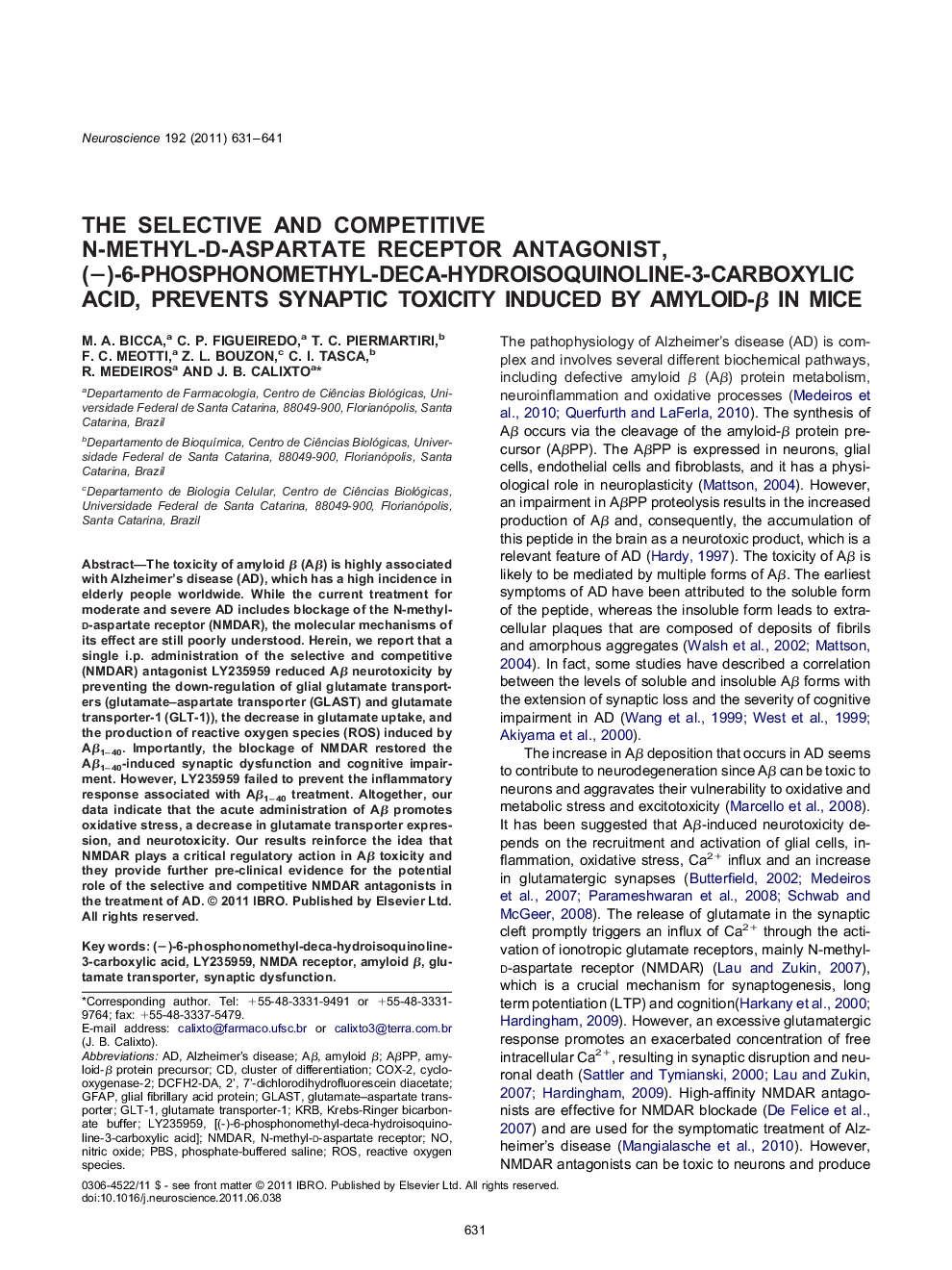| Article ID | Journal | Published Year | Pages | File Type |
|---|---|---|---|---|
| 6276159 | Neuroscience | 2011 | 11 Pages |
The toxicity of amyloid β (Aβ) is highly associated with Alzheimer's disease (AD), which has a high incidence in elderly people worldwide. While the current treatment for moderate and severe AD includes blockage of the N-methyl-d-aspartate receptor (NMDAR), the molecular mechanisms of its effect are still poorly understood. Herein, we report that a single i.p. administration of the selective and competitive (NMDAR) antagonist LY235959 reduced Aβ neurotoxicity by preventing the down-regulation of glial glutamate transporters (glutamate-aspartate transporter (GLAST) and glutamate transporter-1 (GLT-1)), the decrease in glutamate uptake, and the production of reactive oxygen species (ROS) induced by Aβ1-40. Importantly, the blockage of NMDAR restored the Aβ1-40-induced synaptic dysfunction and cognitive impairment. However, LY235959 failed to prevent the inflammatory response associated with Aβ1-40 treatment. Altogether, our data indicate that the acute administration of Aβ promotes oxidative stress, a decrease in glutamate transporter expression, and neurotoxicity. Our results reinforce the idea that NMDAR plays a critical regulatory action in Aβ toxicity and they provide further pre-clinical evidence for the potential role of the selective and competitive NMDAR antagonists in the treatment of AD.
â¶The LY235959 is a selective and competitive NMDAR antagonist. â¶LY235959 treatment prevents synaptic and cognitive impairment induced by Aβ. â¶The LY235959 reduced Aβ toxicity by preventing in GLAST and GLT-1 down regulation. â¶The LY235959 also reduced the production of reactive oxygen species induced by Aβ. â¶LY235959 prevents these cognitive deficits independent of anti-inflammatory effects.
